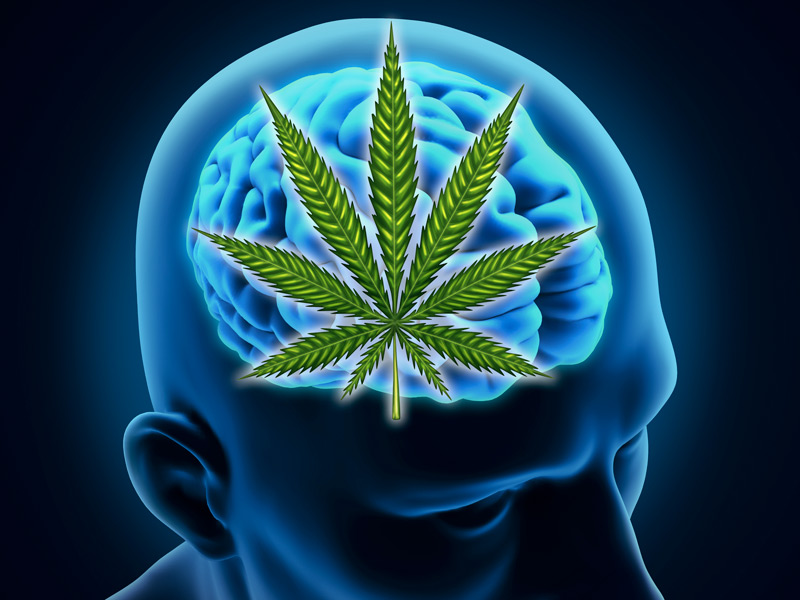Rising sales of cannabis during coronavirus pandemic coincide with discovery of plant’s anxiety-busting capabilities
Some 40 million U.S. adults are believed to suffer from anxiety, whereas major depressive disorder affects some 17.3 million American adults.
Despite the prevalence of mental health conditions, typical over-the-counter (OTC) treatment options, such as opioids, tend to be addictive and, in thousands of cases, fatal.
Fortunately, according to researchers at the Medical University of South Carolina (MUSC), cannabis harbors potential as a natural mood-enhancer and relaxant.
The findings of the study, which were published in Frontiers in Psychiatry, provide researchers with an opportunity to explore the plant as a new potential treatment option.
Although this wasn’t a properly controlled, randomized trial into cannabis for mental health, the findings have triggered a new wave of media buzz surrounding the green plant’s potential.
Previous studies, like this one, have also exposed the cannabis plant’s ability to promote feelings of euphoria, pain relief and relaxation.
What did this study into cannabis for mental health hypothesize?
MUSC’s study into cannabis for mental health conditions focused on the plant’s ability to treat both anxiety and depression.
However, the most favorable outcome was for depression, with the researchers hypothesizing that cannabis successfully reduced depressive symptoms in those who consumed cannabis from the study’s inception; as opposed to those who did not use cannabis at the very beginning.
“These combined cross-sectional and longitudinal findings show a consistent anti-depressant effect of medicinal cannabis,” wrote the study authors, who noted that the results for anxiety were less impactful, but overly positive.
While there were no significant anxiety-focused disparities between participants who consumed cannabis from the study’s initiation and those who did not, participants who started consuming the plant later in the investigation reported decreased anxiety levels relative to the non-consuming study subjects.
One of the most riveting findings was that participants who started using cannabis at a later point in the investigation demonstrated a reduction in depressive episodes, compared to non-consumers. Factually, the second-mentioned group displayed no symptomatic change from their baseline scores at the study’s launch.
In addition to this, the university researchers found that cannabis users experienced improved sleep, less pain and enhanced quality of life post-consumption.
Alcohol and cannabis sales in Canada have surged during COVID-19 pandemic
It seems that the prospect of using cannabis for mental health enhancement has become all the more appealing amid the coronavirus pandemic.
According to a separate study that was published in JAMA Network Open, monthly sales of alcohol soared by an average of 5.5 percent since March 2020. Conversely, cannabis sales soared by 25 percent over anticipated sales.
This discovery was published in an analysis from the Peter Boris Centre for Addictions Research (PBCAR) of the Homewood Research Institute, McMaster University and St. Joseph’s Healthcare Hamilton.
In order to draw comparisons between 16 months worth of pre- and post-pandemic alcohol/cannabis sales – November 2018-February 2020 in comparison with March 2020-June 2021 – the researchers gleaned their info from Statistics Canada.
According to data published on Statistics Canada’s website, Canadians forked out approximately CAD $1.86 billion (USD $1.48 billion) more on alcohol than was initially predicted; based on trends that occurred before the pandemic erupted. Comparatively, cannabis sales spiked CAD$811 million (USD$646 million) above the forecast amount.
“These results offer one of the first national perspectives on changes in alcohol and cannabis use during the pandemic,” said the study’s co-author and PBCAR director, James MacKillop. “These sales data give us an opportunity to quantify the pandemic’s impacts on two of the most commonly used substances for the country as a whole.”
Furthermore, the research highlighted a 15 percent increase in alcohol and cannabis sales during March 2020 over the predicted growth. This sales growth corresponds with the wave of ‘panic-buying’ that arose when the pandemic first broke out across North America.
“These sales figures give us clues into potential changes in behavioral patterns and can inform planning to address mental health impacts of the COVID-19 pandemic,” added MacKillop.
Once consumer stockpiling eased up, alcohol sales returned to normal levels. Cannabis sales, on the other hand, continued to rise over the 16-month period.
“It’s unclear whether similar patterns exist outside of Canada, but the findings indicate the value of sales data as a strategy to characterize the impacts of COVID-19 on substance use,” said director of analysis at Homewood Research Institute and study co-author, Jean Costello, adding that, “although the changing landscape following cannabis legalization is a critical consideration, the availability of cannabis sales data at all is a boon for researchers evaluating the pandemic’s impacts.”








